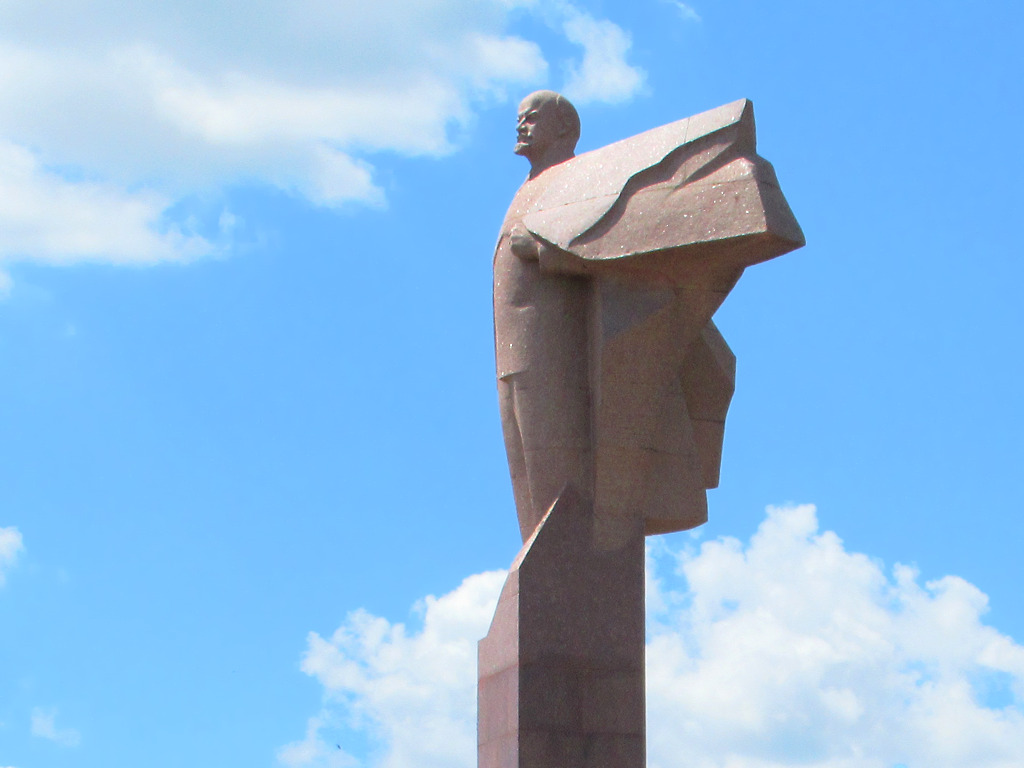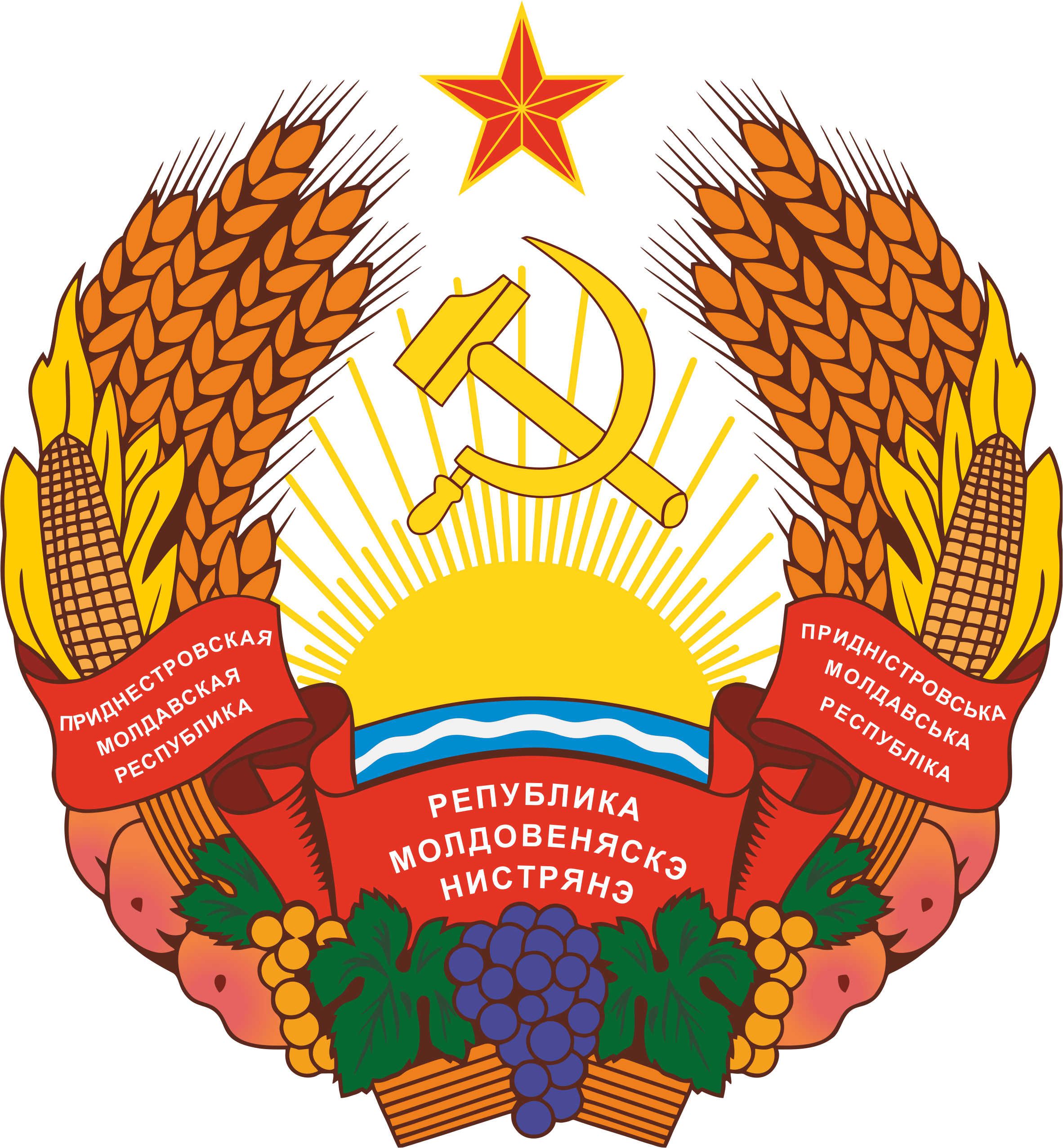More languages
More actions
 | Some parts of this article were copied from external sources and may contain errors or lack of appropriate formatting. You can help improve this article by editing it and cleaning it up. (November 2022) |
| Pridnestrovian Moldavian Republic Приднестро́вская Молда́вская Респу́блика Republica Moldovenească Nistreană Придністро́вська Молда́вська Респу́бліка | |
|---|---|
| Capital | Tiraspol |
| Official languages | Moldavian Russian Ukrainian |
| Demonym(s) | Pridnestrovian Transnistrian |
| Dominant mode of production | Capitalism |
| Government | Unitary bourgeois republic |
• President | Vadim Krasnoselsky |
• Prime Minister | Aleksandr Rozenberg |
| Legislature | Supreme Council |
| History | |
• Independence from Moldavian SSR declared | 2 September 1990 |
• Independence from the USSR declared | 5 August 1991 |
• Pridnestrovian War | 2 March – 1 July 1992 |
| Population | |
• 2022 estimate | 347,251 |
• Density | 73.5 km² |
| Currency | Pridnestrovian ruble |
Pridnestrovie, officially known as the Pridnestrovian Moldavian Republic, is a partially recognized state in Europe, it is bordered by Moldova and Ukraine. Its capital and largest city is Tiraspol.
Despite its Soviet-era aesthetics including the usage of the flag of the Moldavian SSR, it's not a socialist state, however, it does have a communist party.
Name
The region has been referred to by various names, the official short name according to the de facto government is Pridnestrovie, despite this, Transnistria is the more common term for the state and region.
According to the Pridnestrovian Foreign Minister Vitaly Ignatiev, "[t]he denomination Transnistria refers to the period of the Second World War and is associated with military, political crimes, [and] the Holocaust"[1].
History
Pridnestrovie declared its independence from the Moldavian SSR on 2 September 1990 as the Pridnestrovian Moldavian Soviet Socialist Republic, however it was never recognized by the Soviet Union.
The Pridnestrovian Moldavian SSR declared its independence from the Soviet Union on 5 November 1991, it also abandoned socialism and was renamed the Pridnestrovian Moldavian Republic.
Pridnestrovian War
Current day
Foreign relations
Pridnestrovie has no official relations with most countries outside of three other unrecognized states: Abkhazia, Artsakh and South Ossetia, despite this, it maintains unofficial relations with a few countries.
Pridnestrovie—Russia relations
Russia does not have diplomatic relations with Pridnestrovie, however it has strong unofficial relations with it.
Russia has had a consulate in Pridnestrovie since 2012.
Pridnestrovie—Ukraine relations
Like Russia, Ukraine does not have diplomatic relations with Pridnestrovie, however it maintains a special relationship with it.
Relations between the two have declined since the 2014 far-right Ukrainian coup, relations hit their lowest point during the 2022 Russo-Ukrainian conflict, this is despite Pridnestrovie taking no side in the conflict.[2]
Architecture

One of the most noticeable parts of Pridnestrovie architecture is the Soviet-era aesthetics, the flag and coat of arms of the state both feature a hammer and sickle despite the country not being socialist, many Soviet monuments are also around the region, including one of Russian revolutionary Vladimir Lenin.
References
- ↑ "Vitaly Ignatiev Gave an Interview to a Danish National Public Radio Journalist" (2021-04-27). Ministry of Foreign Affairs of Pridnestrovian Moldavian Republic.
- ↑ “I try to make sure that we are heard, I try to remove all the possible speculations about Pridnestrovie that appear online, in various media, in statements of certain officials, and to convince that Pridnestrovie is not an aggressor, that we have no plans to attack our neighbors – neither Ukraine, nor Moldova. But if there is aggression against Pridnestrovie, naturally, the Pridnestrovian people will stand up to defend their homeland”
"Vadim Krasnoselsky Met with the Russian Ambassador" (2022-06-28). Ministry of Foreign Affairs of Pridnestrovian Moldavian Republic.


